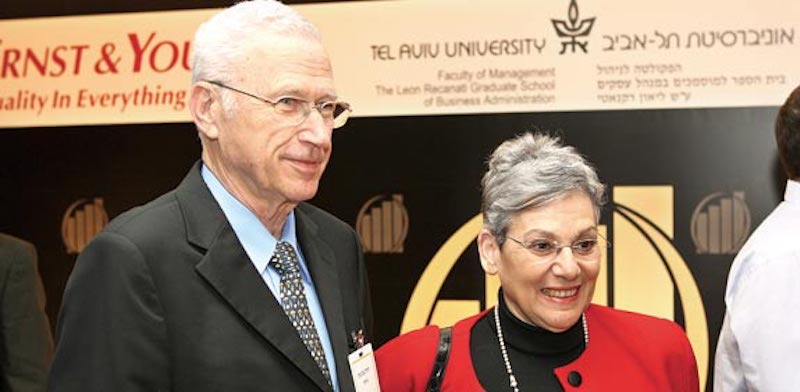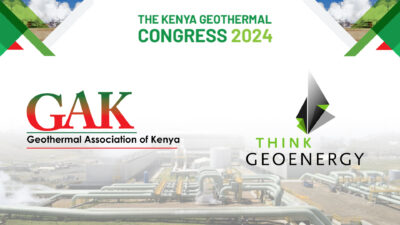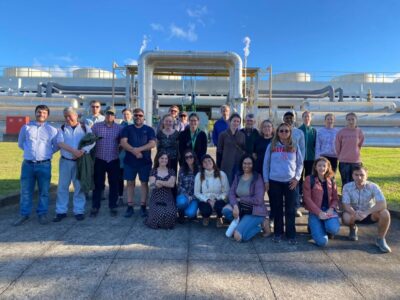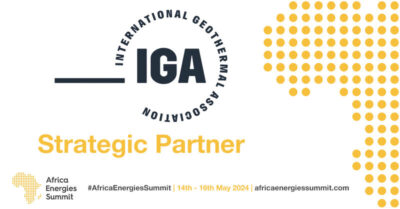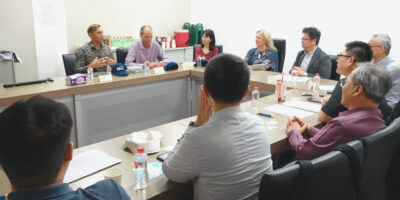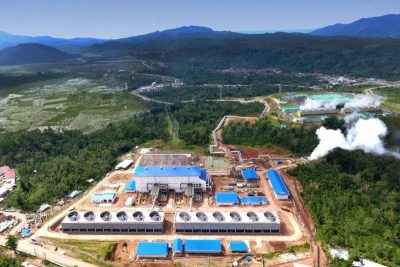Lucien Bronicki, Founder and former Chairman of Ormat receives Engineering Award
Lucien Bronicki, Former Chairman and CTO of Ormat Industries Ltd, is to receive the 2018 Royal Academy of Engineering Prince Philip Medal for his outstanding work in developing new technologies to harness the earth’s geothermal power.
As announced today, Lucien Bronicki, Former Chairman and CTO of Ormat Industries Ltd, is to receive the 2018 Royal Academy of Engineering Prince Philip Medal for his outstanding work in developing new technologies to harness the earth’s geothermal power.
The Prince Philip Medal is the Academy’s most prestigious individual award, made in honour of its Senior Fellow, HRH The Prince Philip Duke of Edinburgh KG KT. The award is made biennially to an engineer of any nationality who has made an exceptional contribution to enginering.
Geothermal energy is a clean, virtually emissions-free, renewable energy resource. Lucien Bronicki’s pioneering work on organic fluid based powerplants has been critical for the development of the industry, enabling lower temperature energy sources to be tapped.
In the late 1950s Bronicki began work on the development of a small solar power unit with Harry Zvi Tabor at the National Physical Laboratory of Israel. Bronicki proposed a modified Rankine Cycle that could use a wide range of organic fluids, such as diphenyls or pentanes, in place of water and steam. His work was key to increasing the efficiency of Organic Rankine Cycle (ORC) systems, enabling the recovery of heat from lower temperature sources, including geothermal and industrial waste heat.
Based on his newly patented ORC system cycle, Bronicki established Ormat Turbines in 1964, later Ormat Industries Ltd. In 1966, Ormat’s first unit, a solar powered ORC electric water pump, was installed in Mali.
The company later identified a niche market opportunity in supplying power for telecommunication repeaters in remote areas, where the high reliability of Ormat’s units would be paramount. One of the main clients for these units was the Trans-Alaska Pipeline project, where many of the 120 units installed in 1975 are still in operation today.
Following the 1973 oil crisis, interest in using lower-temperature heat sources to produce energy rose, and ultimately led to Bronicki’s decision to refocus Ormat’s activities on the design and manufacturing of equipment for geothermal and recovered energy power plants. The company later expanded into the development and construction of turnkey projects, including their operation.
To date Ormat has built circa 3,000 MWs of geothermal capacity in tens of geothermal power plants worldwide, which currently accounts for 80% of the world’s ORC generated power.
Lucien Bronicki has made significant contributions to engineering science as a whole, with about 50 scientific publications and 35 authored patents, with another 65 co-authored. He has also supported institutions focusing on geothermal energy production, such as the Geothermal Resources Council in the USA.
Lucien Bronicki said: “It is a great honour to receive the Prince Philip Medal. At the time, “selling” a completely new type of power unit against well established and proven diesel generators or geothermal steam plants was difficult and it is gratifying that today there are many well established manufacturers and R&D centres promoting ORC systems.”
Dr Anthony Batchelor FREng, Executive Chairman of GeoScience Ltd, who nominated Bronicki for the award, said: “The combined development of the technology and effective means of delivery of Organic Rankine Cycle systems is an outstanding contribution to the field of electricity generation from low temperature fluid sources.
“I have worked on several geothermal projects where Ormat technology has been key to success. All have been associated with producing electricity with very low carbon emissions and zero nitrogen oxides, well before the current increased demand for such systems. Many would have been shelved, or not even developed, without this technology.”
The Royal Academy of Engineering is the UK’s national academy for engineering. and the Prince Philip Medal, is a gold medal to be ‘awarded periodically to an engineer of any nationality who has made an exceptional contribution to engineering as a whole through practice, management or education’, to be known as the Prince Philip Medal. It is awarded every two years.
Source: Royal Academy of Engineering
